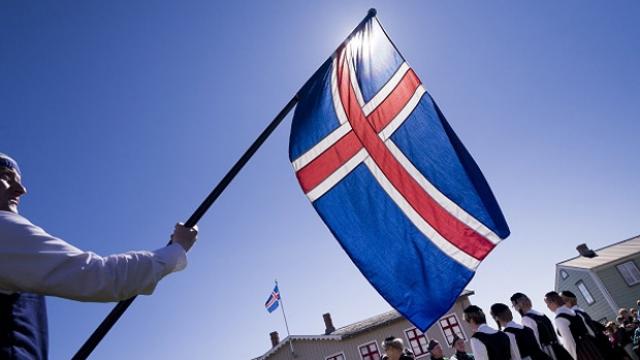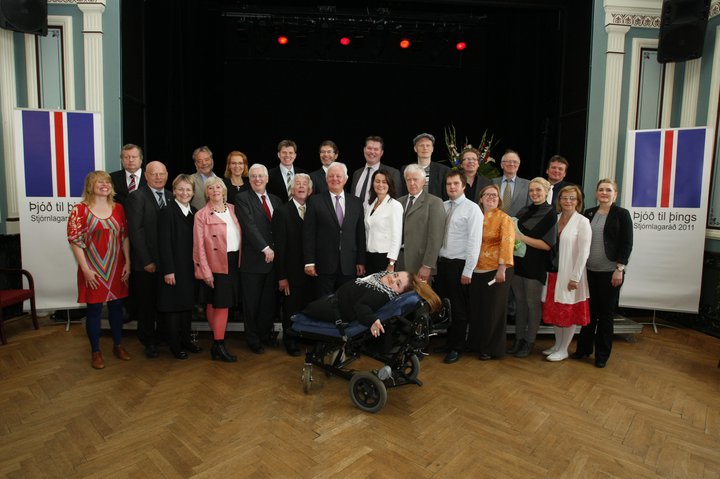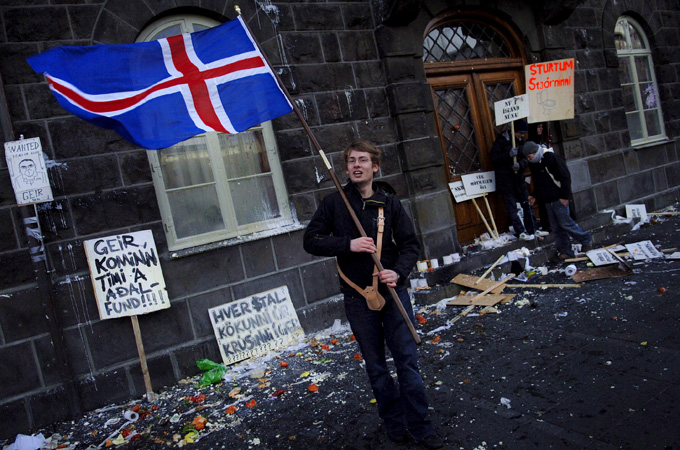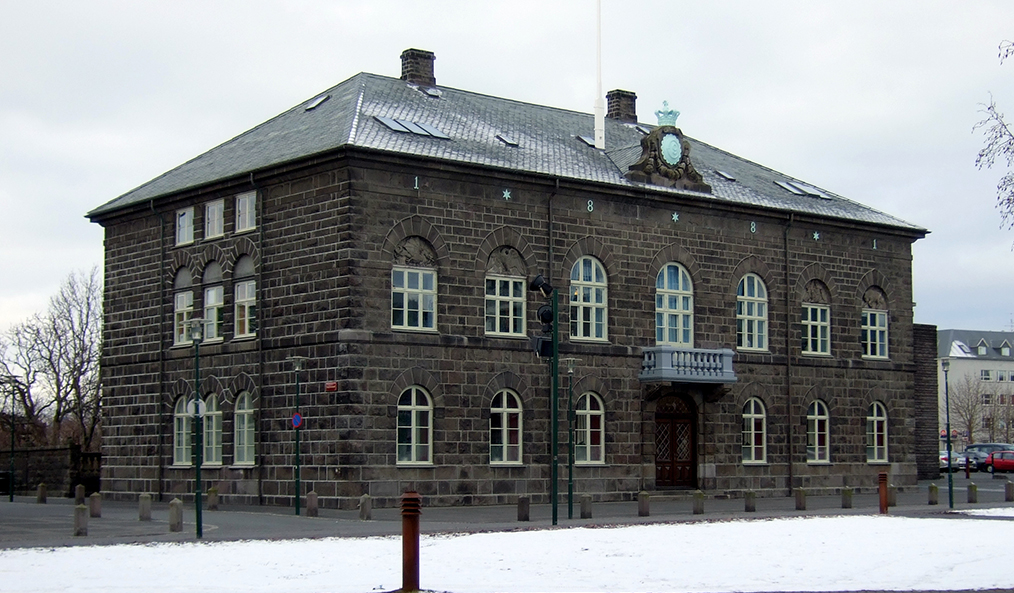
Formed in response to the 2008 financial crisis, Iceland's Association of Sustainability and Democracy, or ALDA, is one of the European island nation's pioneering direct democracy groups. Featured prominently in the film, "Pots, Pans and Other Solutions," it has formulated proposals which could radically alter the political and economic landscape, defying the neoliberal mantra that "there are no alternatives."
Their changes include using randomly selected citizens to become members of Parliament, democratizing the workplace, and establishing citizen assemblies to decide crucial issues -- including holding one at least every 20 years to redraft the national constitution. In 2011, the group submitted 12 ideas into the crowd-sourced constitutional process.
“One of the main reasons for forming ALDA was there was no organization with a roadmap to change our political and economic systems, despite the obvious defects,” says Kristinn Már Ársælsson, one of the group's founding members. A sociologist academic by training, Már Ársælsson predicts that increasing crises such as climate change and economic inequality will demand alternative systems on a global scale.
Occupy.com interviewed Már Ársælsson to explore ALDA’s aims and to better understand how the 2008 crash galvanized Icelanders to seek economic and political alternatives.
A People's Constitution
Iceland gained international attention for its new constitution created by a citizen council, based on consensus. An English translation of the document shows the ways it protects social and economic rights that are threatened in other countries. Based on proposals taken from the Internet, it has the potential to be the first ever digitally crowd-sourced constitution. Yet it was never ratified.
The constitution was presented to Icelanders on October 20, 2012, and passed with 73% support. The public turnout, however, was just 48%. “The procedure itself was experimental and had numerous flaws,” Már Ársælsson reflects. “We need to revise the constitution with even greater public participation.”
Instead of now trying to ratify the document, he advocates starting over using a clearer process. During the original attempt, timing and progression decisions were made as the process went along. Már Ársælsson also points out that “the process of voting – of a single transferable vote, for citizens to be appointed to the council – was also new. This was a very important, single part, and was a first using the transferable vote," he says, "so it probably reduced the legitimacy needed.”
Már Ársælsson says he would promote further measures that enable participatory decision making, democratize the workplace, protect the environment and restructure the financial system. He points out that it was the near total meltdown of Iceland's economy which served as the catalyst for the constitutional process.
But it was in the Parliament where the constitution failed. At the time of the referendum, a left wing coalition was in power and yet the government did not ratify it. Since then, a right wing coalition has been elected, leading many outside observers to predict the process has failed.
The inaction by the left wing-led Parliament, says Már Ársælsson, reflected politicians' overall tentative reaction to the crisis. “Political parties in positions of power, on both the right and the left in Iceland, as everywhere else, were in agreement that the correct course of action was restoration and not revolution.”
Changing Leadership
Experimentation with democracy runs as a theme through the Icelandic movements, a point which is captured well in "Pots, Pans and Other Solutions." One of ALDA’s methods that differentiates it from others Icelandic groups is its advocacy of randomly selected politicians.
ALDA has proposed that one-third of the ministers in Iceland’s Parliament be randomly selected, and the others voted in: half as independents, half from political parties. The association asserts that random selection will provide for more equal rights than in the current representative system. The group writes: “Those chosen randomly generally see themselves representing the general public while those elected from party-lists see themselves as representatives of their political party’s voters.”
Már Ársælsson highlights four instances over the past decade in which Iceland's power structure resulted in crucial decisions being made which contradicted public opinion and public will: 1) attacking Iraq; 2) joining NATO; 3) building the Kárahnjúkar hydroelectric plant; and 4) privatizing the banks.
He believes that using a random selection of politicians from society can reduce the chance that Parliament will act against majority will on crucial matters affecting most of the population. “A randomly selected citizens council is more likely to contain a broader section of society. Anyone therefore is equally likely to be selected and this adds legitimacy. There is also evidence that cognitive diversity yields better results, even compared to selecting groups of specialists," says Már Ársælsson, who recommends Héléna Landemore's book "Democratic Reason" to learn more.
Within the international media, some have written off Iceland's direct democracy experiments as an opportunity lost, citing few examples of real progress. Már Ársælsson agrees that only small steps have so far been taken. But he interprets the results differently: for him, the crisis has produced a discussion that is necessary before there can be any system change.
“The general public was unlikely to call for changes they have never heard of in 2008. What we have learned is we need ideas and institutional models, such as for sustainable and democratic economics, and the method to implement participatory democracy," he says. "For the next crisis, we need a roadmap to follow.”
ALDA is hardly alone with that aim. A recent article, "Dandelion Against Neoliberalism," argues that the numerous global social justice movements that have emerged since the financial crash are potentially spreading the seeds of radical change that will flourish later.
When I ask Már Ársælsson to evaluate the extent that the financial crash and subsequent people’s movements are having in helping to undermine current neoliberal dominance, he responds:
“Right now, there is a worldwide movement working on solutions to our problems looking at new economic and political models, but it is so far incoherent. Of course, it was there before the crash, but it has many new elements. It is also far more visible in the public discussions, and with at least some public support. I expect we’ll see even cooperation across this movement.”
He suggests that the lack of political parties offering a clear agenda for change indicates the movement has a ways to go, although the distance is far nearer than before. “The financial crisis and other issues, particularly climate change and how prosperity and growth interact, mean the persuasive powers of ‘there are no alternatives’ are greatly diminished everywhere.”
3 WAYS TO SHOW YOUR SUPPORT
- Log in to post comments

















